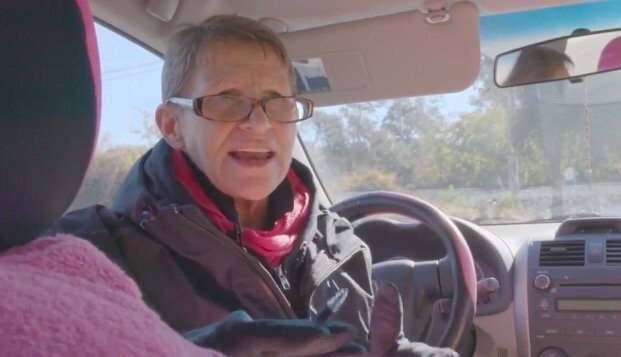‘I didn’t want to die that way’: Former homeless meth addict becomes outreach navigator for others

After 21 years of meth addiction and a decade of homelessness on the streets of Sacramento
By Ty Steele
Click here for updates on this story
SACRAMENTO, California (KCRA) — After 21 years of meth addiction and a decade of homelessness on the streets of Sacramento, Tracey Knickerbocker, 61, said God saved her life so she could show others a path out of homelessness and back to the real world.
Knickerbocker is employed as a homeless outreach navigator with HOPE Cooperative, an organization that provides mental health and supportive housing services for people with behavioral health challenges in Sacramento County.
“I was trying to kill myself on it,” said Knickerbocker as she stood on one of the same streets she used to frequent when she was still homeless in Sacramento County. “I was. I came out here to die, and I did as much dope as I could every single day.”
Knickerbocker said she had a privileged childhood and graduated from Vanden High School in Fairfield in 1979. She earned a criminal justice degree from the University of La Verne and eventually graduated from Humphries College in Stockton with a Paralegal Certificate in 1998.
But despite her degrees, privileged upbringing and professional success, Knickerbocker had suffered a secret trauma as a teen and began using drugs to cope with the pain.
She said experimentation eventually turned into a full-blown, yet secret addiction to methamphetamine. A year later, Knickerbocker was arrested for possession of methamphetamine. The charges were eventually dropped on a technicality, but Knickerbocker said she ended up unemployable, collecting Social Security Disability and living on the streets.
“I’m an IV drug user, so I was slamming as much dope as I could every day,” said Knickerbocker, who also said she was spending all of her Social Security benefits to buy more methamphetamine and cigarettes.
In 2005, Knickerbocker was arrested a second time for possession of methamphetamine. At this point, she said she was unknowingly living in a drug-induced psychosis. But miraculously, Knickerbocker said something broke inside her and she cried out for help.
“I didn’t want to die that way, man,” said Knickerbocker as she fought back tears recalling the memory. “Dying out here, homeless, it’s sad. It’s sad, and it’s pathetic. So sad. So, I remember, I got on my knees – just right up over here – got on my knees and I asked God, God oh please help me. I don’t want to do this anymore.”
Knickerbocker said that prayer was answered, and on April 2, 2008, she got clean. But she was still living on the streets, and she continued to live like that, sober and homeless, for another 18 months.
“All those people that used to come out by my encampment, bring us water, bring us prayer, bring us socks,” said Knickerbocker. “It started poking holes at my heart.”
In 2014, after six years clean and sober, Knickerbocker bought her first home, and a year later began working at Sacramento Steps Forward as an outreach navigator. With full-time employment, Knickerbocker stopped collecting her Social Security Disability checks. In 2017, Knickerbocker began working for HOPE Cooperative with the mobile crisis support team.
As part of her daily check-ins, Knickerbocker guided KCRA 3’s team to an area along the American River Parkway where hundreds of homeless people live.
Most of her former homeless friends still live there, including her best friend Jeff Fry. Fry has been homeless and addicted to methamphetamine for more than 40 years, with most of that time spent in Sacramento County.
Knickerbocker and Fry were self-described “partners in crime” for ten years.
“You did everything you said you were going to do,” said Fry as he embraced Knickerbocker outside his campsite along the riverbank. “I don’t know anyone that’s ever done that. Nobody.”
Fry, 61, is the same age as Knickerbocker and admits that living unhoused and addicted to drugs is getting much more difficult as he gets older. Fry said he doesn’t see himself living homeless forever, but he does not have any immediate plans to get into housing.
“Jeff, you can do whatever it is you put your mind to,” said Knickerbocker as she embraced Fry. “I don’t want you dying out here.”
Sacramento County’s homeless population has exploded to almost 9,300 people, the highest total on record, according to the latest Homeless Point-In-Time Count. This is a 67 percent increase over the last three years. Another report by Sacramento Steps Forward and Sacramento State University showed that between 16,500 and 20,000 separate people will experience homelessness during a one-year period in the county.
Please note: This content carries a strict local market embargo. If you share the same market as the contributor of this article, you may not use it on any platform.